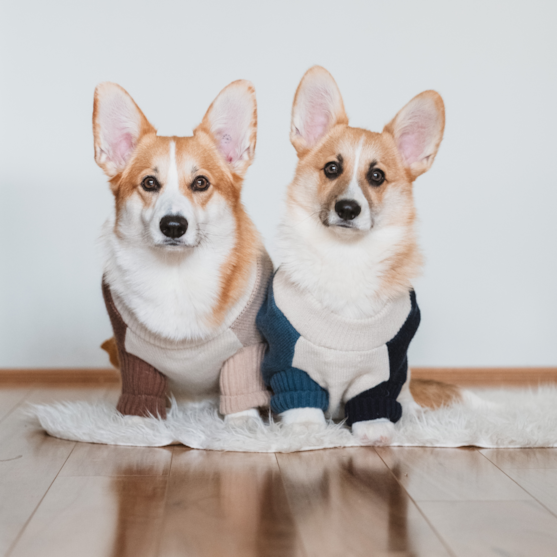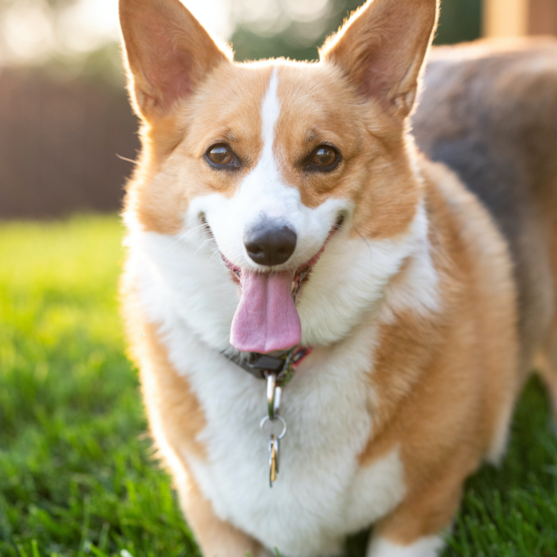Pembroke Welsh Corgi Breed Info


Stepping into the realm of the Pembroke Welsh Corgi is like embarking on a delightful journey filled with surprises. These purebred wonders, with their short legs and elongated bodies, are more than just a visual treat, they're a bundle of joy wrapped in fur.
Originating from the picturesque landscapes of Wales, the Corgi has a legacy that's as enchanting as their demeanor. These dogs, with their perky ears and expressive eyes, have a way of communicating that's unparalleled. Every wag of their tail, every playful bark, tells a story.
Corgi puppies, with their boundless curiosity, are nature's way of reminding us of the wonders of life. As they grow, their kind-hearted and amiable nature becomes even more evident. They're not just pets, they're companions, confidants, and a source of endless entertainment.
Their stature, while unique, is a testament to their agility and strength. Don't be fooled by their size, these dogs are spirited, agile, and incredibly alert. Whether they're herding on a farm or playing fetch in a city park, their zest for life is contagious.
In the tapestry of dog breeds, the Pembroke Welsh Corgi is a standout thread, shimmering with their own unique hue and texture. Embracing a Corgi means opening your heart to a world of affection, laughter, and unwavering loyalty.
Characteristics
- Despite their compact size, Corgis boast a robust build. Their strong, muscular legs are perfectly designed for agility and endurance, making them surprisingly athletic
- One glance into a Corgi's eyes reveals a world of emotions. Their eyes, often a deep shade of brown, sparkle with intelligence, curiosity, and a hint of mischief
- Having been associated with royalty, there's an undeniable air of elegance that Corgis carry. Their confident stride and poised demeanor reflect their royal lineage
- Corgis flaunt a double coat that varies in shades from rich reds to fawn, sable, and even tri-colored patterns. This coat not only adds to their charm but also provides insulation against various weather conditions
- Standing erect and slightly pointed at the tip, their ears are always on alert. They play a significant role in their communication, perking up with interest or flopping slightly in relaxation
- Corgis are known for their unwavering loyalty. They're always eager to be by your side, whether it's for an adventure or a quiet evening at home
- Originally bred for herding, their instincts remain sharp. They're often seen trying to "herd" moving objects, be it a rolling ball or even family members
- Whether residing in a countryside mansion or a city apartment, Corgis adapt seamlessly. Their moderate energy levels and sociable nature make them fit for various lifestyles

Appearance
The Pembroke Welsh Corgi's appearance is a delightful blend of functionality and charm. Their unique physical attributes set them apart in the canine world, making them easily recognizable and endlessly endearing.
Corgis are small but mighty. Their compact body is supported by short, sturdy legs, giving them a low-to-the-ground profile. This design was historically advantageous for their herding tasks, allowing them to move swiftly and avoid cattle kicks.
One of the first things you'll notice about a Corgi dog is their alert and intelligent expression. Their almond-shaped eyes, ranging from deep brown to shades of hazel, radiate warmth and curiosity.
Standing tall and erect, their ears are a defining feature. They are always on the alert, picking up sounds and signals from their environment.
The Pembroke Welsh Corgi boasts a thick, weather-resistant double coat that can come in a variety of colors, including red, sable, fawn, and black and tan. Some may also have white markings, adding to their visual appeal.
Historically, the Pembroke's tail was docked, giving them a distinct look from their Cardigan cousins. While tail docking is less common today, many Pembrokes naturally have a shorter tail, adding to their unique silhouette. Despite their short legs, Corgis are agile and athletic. Their movement is smooth and coordinated, reflecting their herding lineage.
The Pembroke Welsh Corgi's appearance is a testament to their historical roles and adaptability. Every aspect of their look, from their pointed ears to their agile gait, speaks volumes about their heritage and character.
Temperament
The Pembroke Welsh Corgi's temperament is a harmonious blend of affection, intelligence, and adaptability. Their unwavering loyalty and heartwarming nature make them a cherished member of any household.
Corgis are known to form deep bonds with their families. They thrive on human interaction and are always eager to shower their loved ones with affection. Their gentle and kind-hearted nature makes them excellent companions.
These dogs are thinkers. Their intelligence is evident in their keen problem-solving skills, making them quick learners and responsive to training. However, this also means they enjoy mental stimulation through games and puzzles.
Corgis are playful and enjoy a good game. Whether it's a game of fetch or a playful romp in the yard, their lively spirit is infectious. Despite their size, Corgis are known to be protective of their families. They're always alert and will not hesitate to sound the alarm if they sense something amiss.
With proper socialization, Corgis get along well with other pets and children. Their friendly disposition makes them popular in social settings, be it dog parks or family gatherings.
Care
Grooming
Grooming is more than just maintaining your Corgi's appearance, it's about ensuring their overall well-being. By turning grooming sessions into moments of connection, you not only care for your Corgi's physical needs but also nurture the bond you share.
The Corgi's double coat acts as a protective shield against various weather conditions. While it's a natural barrier against the elements, it requires regular attention to keep it in prime condition.
Corgis are known to shed, especially during the transition between seasons. Investing in a quality brush and setting aside time for weekly brushing sessions can help manage the loose fur, ensuring your Corgi's coat remains lustrous and tangle-free.
While Corgis don't need frequent baths, it's essential to make bath time a positive experience. Using dog-specific shampoos and ensuring the water is at a comfortable temperature can make the process enjoyable for your Corgi.
Those adorable Corgi paws are always on the move. Regularly checking and cleaning their paws, trimming the nails, and ensuring the pads are free from debris can keep them ready for their next adventure.
Just like us, Corgis benefit from dental care. Incorporating teeth cleaning into your grooming routine, whether through brushing or dental chews, can ensure a bright Corgi smile.
Regularly checking your Corgi's ears for any signs of infection or debris and cleaning them gently can prevent potential issues. Similarly, wiping their eyes with a soft, damp cloth can keep them sparkling.
Exercise Needs
The Pembroke Welsh Corgi, with their unmistakable silhouette and zest for life, is always on the move. Corgis are natural explorers. Taking them on nature trails, where they can traverse different terrains, from soft grass to pebbly paths, offers them a diverse sensory experience.
While not all Corgis may be natural swimmers, many enjoy splashing in shallow waters. Setting up a kiddie pool in your backyard or visiting calm beaches can be a refreshing activity, especially during warmer months.
Instead of the traditional ball, try using toys that challenge their agility. Squeaky toys or those that bounce unpredictably can add an element of surprise to their play sessions.
Hide treats around your home or garden and watch your Corgi use their keen sense of smell to hunt them down. Corgis love crawling through tunnels. Portable play tunnels, often used for cat play, can be a fun addition to their playtime.
Enrolling your Corgi breed in a local dog club can introduce them to various activities tailored to their needs. From relay races to treasure hunts, these clubs offer diverse experiences.
After a day of activity, ensure your Corgi has a comfortable resting space. While they love being active, downtime is essential for their well-being.
By introducing diverse activities into your Corgi's routine, you not only cater to their physical needs but also keep their minds engaged and curious. Every day presents an opportunity for a new adventure with your Corgi companion.
Health
The Pembroke Welsh Corgi, with their cheerful demeanor and robust constitution, is a picture of health when properly cared for. However, like all breeds, they have specific health considerations that owners should be aware of.
Corgis have hearty appetites, which can sometimes lead to weight gain. Providing them with a balanced diet and monitoring their food intake can ensure they stay within a healthy weight range.
Routine veterinary check-ups are crucial for early detection of potential health issues. Regular vaccinations, flea and tick prevention, and dental check-ups are all part of a comprehensive health plan. While Corgis are generally hearty, it's good to be aware of potential cardiac issues.
Beyond aesthetics, grooming plays a role in health too. Regularly checking their ears, paws, and coat for signs of infections or parasites is essential.
A Corgi's mental health is just as vital as their physical health. Ensuring they have ample stimulation, toys, and interaction can prevent feelings of isolation or anxiety.
Lifespan
With a typical lifespan of 12-15 years, the Pembroke Welsh Corgi offers years of companionship, loyalty, and love. By understanding the different stages of their life, owners can tailor care, activities, and routines to ensure their Corgi's well-being at every step.
The early days of a Corgi's life are filled with boundless energy, curiosity, and rapid growth. This phase, which lasts up to a year, is crucial for training, socialization, and forming a strong bond.
From one to three years, your Corgi transitions from a playful pup to a mature dog. They're still active and playful, but with a bit more wisdom and calmness. This is often the phase where their personality shines brightest.
Between the ages of four and eight, Corgis are in their prime. They're confident, have established routines, and their bond with the family is deep and unwavering.
As they approach their ninth year and beyond, Corgis enter their golden years. While they might slow down a bit, their spirit remains undiminished. It's essential to provide them with extra care, regular health check-ups, and lots of love during this phase.
Cherishing every moment, from the playful puppy days to the serene senior years, ensures a fulfilling and enriching journey with your Pembroke Welsh Corgi.
Training
Training a Pembroke Welsh Corgi is not just about commands and routines, it's about building a bond of trust, understanding, and mutual respect. With patience, consistency, and a sprinkle of fun, you'll have a well-trained Corgi companion who's eager to please and ready for any adventure.
The saying, "The early bird catches the worm", holds true for Corgi training. Begin training sessions when they're puppies. Their curious minds are like sponges, absorbing and learning quickly.
Corgis thrive on consistency. Whether it's commands, rewards, or routines, maintaining uniformity helps them understand and respond better. Celebrate your Corgi's achievements, no matter how small. Using treats, praises, or playtime as rewards reinforces good behavior and encourages them to repeat it.
They have a relatively short attention span. It's beneficial to keep training sessions brief but engaging. Multiple short sessions throughout the day are more effective than one extended session.
Socialization is a crucial aspect of Corgi training. Exposing them to different environments, people, and other animals helps in building their confidence and social skills.
Beyond basic commands, introduce activities that challenge their intellect. Tricks, agility courses, or even scent-based games can be both fun and mentally stimulating.
While Corgis are generally well-behaved, they can sometimes exhibit undesirable behaviors like excessive barking or herding tendencies. Addressing these behaviors early on, through redirection or positive reinforcement, ensures they don't become ingrained habits.
If you're new to dog training or facing challenges, don't hesitate to seek the expertise of professional trainers or enroll your Corgi dog in obedience classes.
Every step in the training journey is a milestone. Celebrate your Corgi's achievements, and don't forget to enjoy the process.
History
The Pembroke Welsh Corgi, a breed synonymous with Wales, has a history that's as rich and varied as the landscape from which it hails.
The breed's name gives away their origin. "Corgi" is derived from the Welsh words "cor" (dwarf) and "ci" (dog), aptly describing this small but sturdy breed. They were brought to Wales by Flemish weavers who settled in Pembrokeshire in the 10th century.
Corgis were primarily used as herding dogs, prized for their intelligence, agility, and hardworking nature. Their low stature was an advantage, allowing them to dodge kicks while herding cattle and sheep.
The Pembroke Welsh Corgi's association with the British royal family, especially Queen Elizabeth II, brought them into the limelight. The Queen's fondness for the breed began in her childhood, and she has owned over 30 Corgis since then.
It's essential to note that there are two main types of Welsh Corgis: the Pembroke and the Cardigan. While they share similarities, they have distinct histories and characteristics. The Pembroke is generally smaller, with pointed ears, while the Cardigan has rounded ears and a larger frame.
In recent years, there have been concerns about the declining numbers of the Pembroke Welsh Corgi in the UK. However, global admiration for the breed and dedicated breeding efforts are ensuring its continued legacy.
Today, the Pembroke Welsh Corgi is celebrated not just for their historical significance but also for their endearing personality and adaptability. As ambassadors of Welsh canine heritage, they continue to win hearts worldwide.
